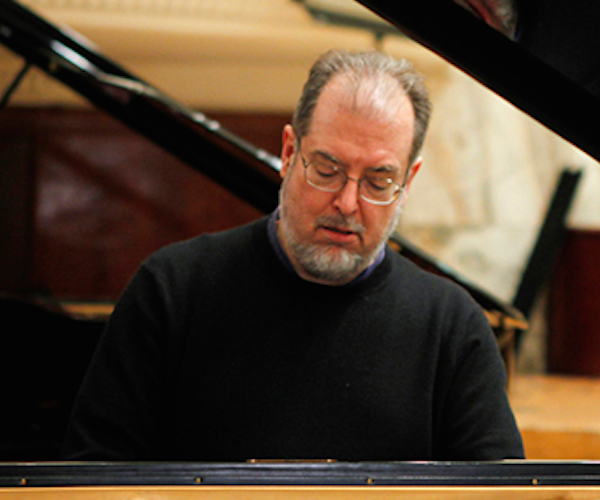Concert Review: Pianist Garrick Ohlsson at Mechanics Hall
A pianist with an uncommonly sensitive touch, Garrick Ohlsson’s playing encompasses poeticism and technical strength in just about equal measure.

Pianist Garrick Ohlsson. Photo: Music Worcester.
By Jonathan Blumhofer
Garrick Ohlsson turns seventy in April, but he’s been among the ranks of the country’s most eminent pianists for a good quarter-century already. Music Worcester brought him and his artistry to Mechanics Hall on Saturday night for a recital of pieces by Beethoven, Schubert, and Scriabin.
A pianist with an uncommonly sensitive touch, Ohlsson’s playing encompasses poeticism and technical strength in just about equal measure. On Saturday, both of those qualities were most evenly demonstrated in the five-piece “Scriabin sampler” that fell across the middle of the night’s program.
Scriabin is an Ohlsson specialty – he prefaced his performance with substantial, often humorous, introduction to the composer that ably demonstrated his familiarity with his life and style – and the five selections he played spanned much of the last two decades of Scriabin’s career.
The earliest work was the 1894 Etude in D-flat, op. 8 no. 10, which Ohlsson tossed off with immense control and copious helpings of brio. White-hot energy marked his performance of the Prelude op. 59 no. 2, while the incessant Etude op. 65 no. 1 (a study of playing in ninths) took on a Debussy-like sheen.
Best were the final two pieces: the first, a lush, tender account of the Poeme op. 32 no. 1; the second, a whorling drive through the ferocious demands of the Sonata no. 5. In his talk, Ohlsson described the latter as among “the most exciting” pieces he knew and he certainly played it as such. Its dreamy, lyrical interludes were shaped with care while he tackled its lightning-fast runs and rhythmic hijinks with a kind of gleeful fury.
Before the Scriabin came Beethoven’s Piano Sonata no. 8, the Pathetique.
Here, Ohlsson’s approach was, on the whole, more elegant than not. Sure, there were moments that hinted at the raw fury lurking below music’s the surface – in some of the fast, scalar runs, as well as certain brisk articulations and dynamic attacks in the outer movements, mostly.
But, by and large, Ohlsson chose to forego the Pathetique’s more revolutionary impulses, and instead teased out its lyricism. This resulted in an incandescent reading of the second movement (whose three-against-two rhythmic conflict was also very strongly etched), but at the price of some lackluster spots in the first and, especially, last ones.
Profoundly successful, though, was Ohlsson’s take on Schubert’s mammoth Piano Sonata in B-flat. Finished just a couple of weeks before Schubert’s death in 1828, it’s an ineffably sad piece, even as much of it sits comfortably in the major mode.
Ohlsson’s interpretation was, throughout, deeply personal and almost uncomfortably intimate, perfectly balanced and played with an intensity that was all the more focused because of his judicious application of the score’s dynamics.
There was also a subtle inevitability to the way everything unfolded, from the harmonic and emotional corruption of the first movement’s “pure” opening theme (over that movement’s twenty-minute span) to the transcendent resolution of the second movement in the shimmering key of C-sharp major.
In Saturday’s context, the third-movement Scherzo, which can easily sound trite, served as a genuine expressive balm. And the finale functioned as a cathartic release. Here, Ohlsson gave the music a bit freer rein, emphasizing its recurring forzandi and imbuing Schubert’s sometimes-repetitious rhythmic patterns with a dancing wit. The result was compelling, intellectually and emotionally.
For an encore after this forty-five-minute-long sonata, Ohlsson returned with – what else? – Chopin’s Minute Waltz, which he tossed off with effortless vim and trademark, pearly tone.
Jonathan Blumhofer is a composer and violist who has been active in the greater Boston area since 2004. His music has received numerous awards and been performed by various ensembles, including the American Composers Orchestra, Kiev Philharmonic, Camerata Chicago, Xanthos Ensemble, and Juventas New Music Group. Since receiving his doctorate from Boston University in 2010, Jon has taught at Clark University, Worcester Polytechnic Institute, and online for the University of Phoenix, in addition to writing music criticism for the Worcester Telegram & Gazette.
